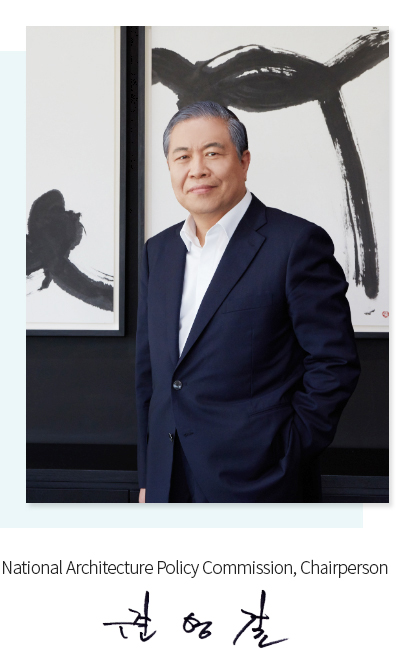A country like a park,
A city like a garden.
Unprecedented in world history, we have achieved a high level of growth in such a short period of time. However, as a consequence of this growth-oriented approach, we have been confronted with numerous instances of fragmentation, conflict, alienation, and loss. Although the realization came rather belatedly, however, such phenomena were deeply intertwined with architecture and urbanism. While the root cause of the problems afflicting modern society lies in urban architecture, the means of resolving them ultimately lies in the architectural environment. In the new era of civilization, a profound reflection on the national living environment is a prerequisite for a contented life.
Engaging in critical self-reflection regarding the cultural tradition of neglecting the aesthetic and ecological dimensions of urban architecture as well as expanding the people's right to savor green spaces through Green Democracy, the happiness of the people will gradually be enhanced. A life of quantity will be shifted to a life of quality, and a life of quality will be changed to a life of excellence. The National Architecture Policy Commission is dedicated to achieve a revolution in the national space of the future so that the space turns into a hopeful nation and contented cities. Correcting today's urban and architectural environment will be accomplished through a democratic green society that fosters citizen participation, expert research, and community deliberation. This is a process of reconfiguring the architectural culture that transforms the nation into a park and the city into a garden.
Building on the achievements of the 1st to 6th terms, the 7th National Architecture Policy Commission will present a vision for contemporary urban architecture while attentively listening to the opinions of the people and the field.We, the National Architecture Policy Commission, pledge to be an active and site-specific government commission that engages in bidirectional feedback and feedforward mechanisms. Feedback mechanism will help us respond quickly to urban architectural issues and feedforward mechanism will set the agenda proactively and present forward-looking policy.
